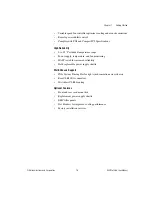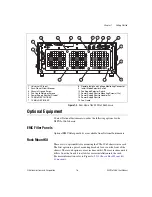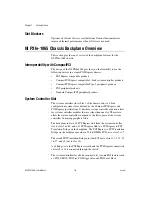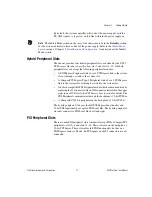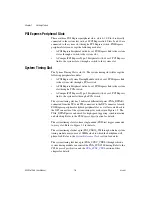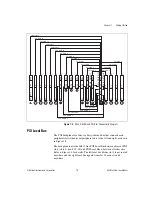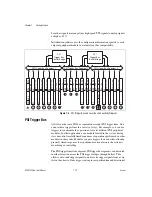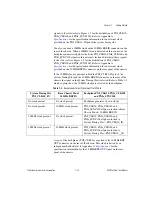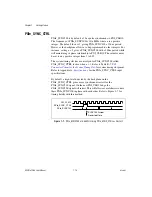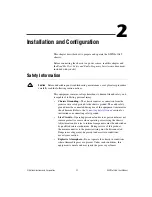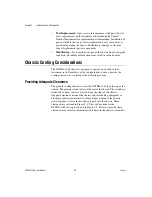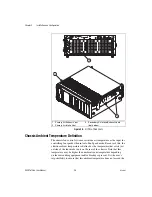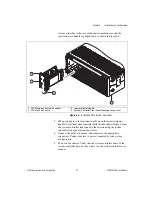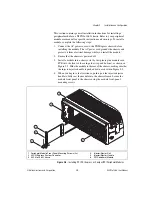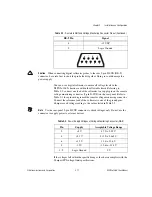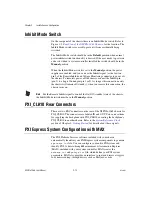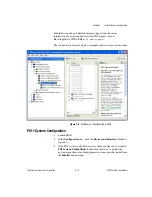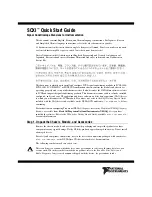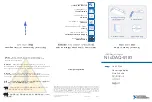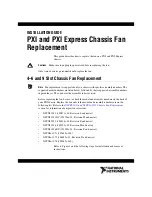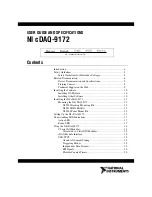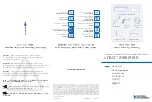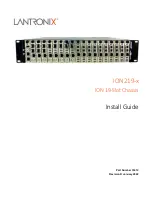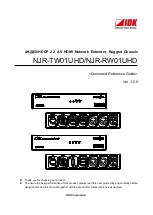
Chapter 1
Getting Started
©
National Instruments Corporation
1-13
signals to the slots (refer to Figure 1-5 for the distribution of PXI_CLK10,
PXIe_CLK100 and PXIe_SYNC100). Refer to Appendix A,
, for the specification information for an external clock
provided on the PXI_CLK10_IN pin of the system timing slot.
You also can drive a 10MHz clock on the 10 MHz REF IN connector on the
rear of the chassis. When a 10MHz clock is detected on this connector, the
backplane automatically phase-locks the PXI_CLK10, PXIe_CLK100, and
PXIe_SYNC100 signals to this external clock and distributes these signals
to the slots (refer to Figure 1-5 for the distribution of PXI_CLK10,
PXIe_CLK100 and PXIe_SYNC100). Refer to Appendix A,
, for the specification information for an external clock
provided on the 10 MHz REF IN connector on the rear panel of the chassis.
If the 10 MHz clock is present on both the PXI_CLK10_IN pin of the
System Timing Slot and the 10 MHz REF IN connector on the rear of the
chassis, the signal on the System Timing Slot is selected. Refer to Table 1-2
which explains how the 10 MHz clocks are selected by the backplane.
A copy of the backplane’s PXI_CLK10 is exported to the 10 MHz REF
OUT connector on the rear of the chassis. This clock is driven by an
independent buffer. Refer to Appendix A,
, for the
specification information for the 10 MHz REF OUT signal on the rear
panel of the chassis.
Table 1-2.
Backplane External Clock Input Truth Table
System Timing Slot
PXI_CLK10_IN
Rear Chassis Panel
10 MHz REF IN
Backplane PXI_CLK10, PXIe_CLK100
and PXIe_SYNC100
No clock present
No clock present
Backplane generates its own clocks
No clock present
10 MHz clock present
PXI_CLK10, PXIe_CLK100 and
PXIe_SYNC100 all phase-locked to Rear
Chassis Panel—10 MHz REF IN
10 MHz clock present
No clock present
PXI_CLK10, PXIe_CLK100 and
PXIe_SYNC100 all phase-locked to
System Timing Slot— PXI_CLK10_IN
10 MHz clock present
10 MHz clock present
PXI_CLK10, PXIe_CLK100 and
PXIe_SYNC100 all phase-locked to
System Timing Slot—PXI_CLK10__IN





